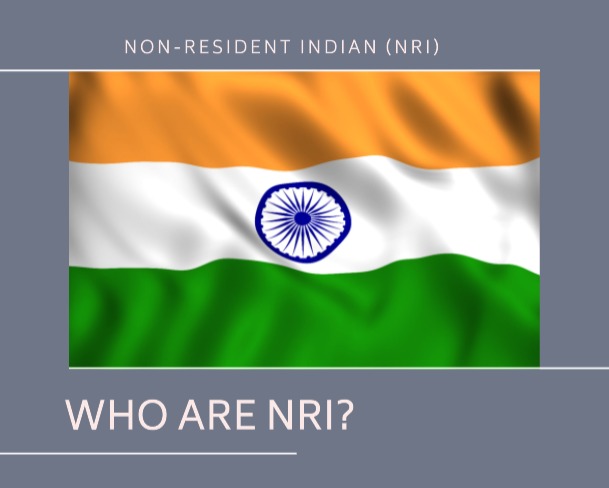Summarize this Article with:
Understanding NRI Full Form and Its Significance for the Indian Diaspora

The Indian diaspora comprises millions of people around the world, including Non-Resident Indians (NRIs), overseas Indians, and Indian expatriates. NRIs are Indians who live abroad but have Indian passports. The NRI community plays a vital role in India’s economy, politics, and culture. NRI remittances alone make up a significant portion of foreign exchange earnings. This article provides an overview of NRI’s full form and its significance.
It includes the different categories of NRIs, how NRI status is determined, and the challenges they face. It will also cover the importance of the OCI card, foreign citizenship, and the Indian diaspora as a whole. Overall, this article will serve as a comprehensive guide to understanding the NRI community and its contributions to India.
Explanation of NRI full form
The full form of NRI stands for Non-Resident Indian. It refers to individuals of Indian origin who live outside India but hold an Indian passport. According to the Indian government, an NRI is someone who has stayed in India for less than 182 days in the preceding financial year.
NRIs are an essential part of the Indian diaspora and are estimated to number over 30 million worldwide. They contribute significantly to India’s economy, particularly through remittances sent back home. NRIs are also active in Indian politics and culture, with many holding influential positions in both fields.
NRI status comes with certain benefits and limitations, such as the ability to invest in India, but also restrictions on property ownership. The NRI community plays a crucial role in India’s development and growth.
What is an NRI?
An NRI is an Indian citizen who has moved abroad for work, education, or another purpose. He has not stayed in India for more than 182 days in the preceding financial year. It is important to note that an NRI is still considered an Indian citizen and holds an Indian passport.
A. Characteristics of NRIs
Indian origin: NRIs are people of Indian origin who have moved abroad and are living outside India.
Cultural and linguistic connections: NRIs maintain strong ties to their Indian culture and heritage and often speak Indian languages.
Strong ties to India: NRIs often visit India regularly, maintain family connections in India, and contribute to the country’s economy and society through remittances and other means.
B. Comparison with PIOs and OCIs
PIOs (Persons of Indian Origin) and OCIs (Overseas Citizens of India) are other categories of people of Indian origin living abroad.
1. PIOs are people of Indian origin who are not Indian citizens and do not hold an Indian passport. They can apply for a PIO card that allows them to travel to and stay in India without a visa for a specified period.
2. OCIs are people of Indian origin who hold citizenship in another country but have a lifelong visa to visit and stay in India. They are not considered Indian citizens and do not hold Indian passports.
Non-Resident Indian: Understanding the Term
The term NRI (Non-Resident Indian) has a historical background dating back to the 19th century. During that time, many Indians migrated to different parts of the world, including Africa, the Caribbean, and Southeast Asia. This was for wo NRI definition rk and business. They retained their Indian citizenship and passport but lived outside India for long periods. In the 20th century, with globalization and increasing opportunities for education and employment abroad, NRIs grew significantly.
Indian government determines NRI status based on the number of days an individual has stayed in India in the preceding financial year. According to the government, an NRI is a person who has stayed in India for less than 182 days in the preceding financial year. If an individual has stayed in India for 183 days or more, they are considered a resident of India for tax purposes.
There are three categories of NRIs based on their purpose of staying abroad
Non-Resident Indian: This is the most common category of NRIs. These are Indian citizens who live abroad for work, education, or other purposes, and hold an Indian passport.
Person of Indian Origin (PIO): PIOs are individuals who are not Indian citizens but have at least one grandparent born in India. They can apply for a PIO card that allows them to travel to and stay in India without a visa for a specified period.
Overseas Citizen of India (OCI): OCIs are individuals who hold citizenship of another country but have a lifelong visa to visit and stay in India. They are not considered Indian citizens and do not hold Indian passports.
Indian Diaspora: NRI and Overseas Indian
The Indian diaspora refers to people of Indian origin who live outside India. It is estimated that the Indian diaspora consists of over 30 million people spread across different parts of the world. The Indian diaspora includes NRIs (Non-Resident Indians) and overseas Indians, who have a significant role to play in India’s development.
The main difference between NRIs and non-resident Indians is that NRIs hold an Indian passport and have lived outside India for less than 182 days in the preceding financial year. In contrast, overseas Indians are people of Indian origin who have obtained citizenship in a foreign country. NRIs may or may not have obtained citizenship in a foreign country, but overseas Indians have.
Overseas Indians are significant to India’s development in several ways. They contribute to India’s economy through remittances. According to the World Bank, India will receive over $83 billion in remittances in 2020, making it the largest recipient in the world. A significant portion of these remittances come from overseas Indians.
Overseas Indians play an important role in promoting India’s culture and heritage in their host countries. They organize cultural events, and festivals, and promote Indian cuisine and traditional arts.
Overseas Indians have also played a significant role in strengthening India’s political and strategic ties with other countries. Many overseas Indians hold positions of influence in their host countries, and they have been instrumental in promoting India’s interests in various fields.
Indian Expatriates and Foreign Citizenship
Indian expatriates are Indians who have moved to a foreign country and obtained citizenship. Indian expatriates are different from NRIs as they do not hold an Indian passport and have renounced their Indian citizenship. They are also different from overseas Indians who are of Indian origin but have not renounced their Indian citizenship.
There are several advantages and disadvantages of foreign citizenship for Indian expatriates. The advantages include better access to education and employment opportunities in the host country, higher social status, and greater political rights. Holding foreign citizenship also provides individuals with the right to vote and run for office in the host country. This can be a significant advantage for those who want to participate in the political process.
However, foreign citizenship also has disadvantages. One of the main disadvantages is the loss of voting and running for office in India. Indian expatriates also lose some benefits available to NRIs. These benefits include tax exemptions, the right to own property in India, and other rights and privileges available only to Indian citizens.
Holding foreign citizenship can also affect NRI status. An individual who has obtained foreign citizenship is not eligible to apply for an OCI (Overseas Citizen of India) card, which is available only to NRIs and overseas Indians. Additionally, if an individual stays in India for more than 182 days in a financial year, they lose their NRI status. They must pay taxes in India.
Indian expatriates are Indians who have citizenship in a foreign country. Holding foreign citizenship has both advantages and disadvantages, including better access to education and employment opportunities. However, it also loses the right to vote and run for office in India. Foreign citizenship also affects NRI status and OCI eligibility.
OCI Card and Its Significance
The OCI (Overseas Citizen of India) card is a form of identification and travel document available to overseas Indians and NRIs. The OCI card allows the holder to enter and exit India multiple times without a visa. It also provides several benefits, including the ability to work and study in India, purchase and own property in India, and access to certain health and educational benefits.
To obtain an OCI card, individuals must apply along with supporting documents, such as proof of Indian origin, proof of residence, and a valid passport. The application process can take several weeks, and the OCI card is typically valid for 10 years.
The significance of the OCI card lies in its ability to provide overseas Indians and NRIs with greater access and benefits in India. The card allows them to maintain a close connection with their homeland. It also makes it easier to conduct business, study, and travel in India.
the OCI card provides a sense of identity and belonging to overseas Indians and NRIs. It helps them stay connected to their roots and cultural heritage.
Challenges Faced by NRIs
NRIs face several challenges when dealing with India, including property ownership, taxation, and bureaucracy. One of the most significant challenges is related to property ownership, as NRIs often face issues with inheritance and transfer of property, which can be a time-consuming and costly process. There are also instances of property fraud and disputes, which NRIs can’t resolve from abroad.
Another major challenge faced by NRIs is taxation, as they must pay taxes in India on their income and investments, as well as in their country of residence. This can lead to double taxation and confusion for NRIs. Additionally, NRIs often face bureaucracy and red tape, which can make it difficult to conduct business or resolve legal issues in India.
The challenges faced by NRIs highlight the need for extensive support and assistance from the Indian government. This is to help overseas Indians navigate India’s complex legal, financial, and administrative landscape.
NRI Remittances and Their Contribution to India’s Economy
NRI remittances contribute to India’s economy, with billions of dollars sent every year by NRIs. These remittances play an important role in supporting millions of families in India. In addition, they contribute to the growth and development of various sectors, including real estate, education, and healthcare.
NRIs also contribute to the Indian economy by investing in various sectors and starting businesses, which creates jobs and drives economic growth. Over the years, NRI remittances have increased, with more and more NRIs investing in India and sending money back to support their families and communities.
The Indian government has also taken steps to encourage NRI investment and remittances. This is done by providing tax incentives and simplifying the NRI investment process. NRI remittances are a crucial component of India’s economy and drive economic growth and development.
Conclusion
This article provides a comprehensive understanding of NRI’s full form and significance. We covered the NRI definition, characteristics, and how status is determined. We also explored the differences between NRIs, PIOs, and OCIs. We also explored the challenges faced by NRIs and the importance of NRI remittances to India’s economy We discussed the OCI card and its benefits.
The NRI community is an integral part of the Indian diaspora, and their contributions to the country cannot be overlooked. The NRI full form represents the important role NRIs play in India’s development and growth. Their continued support and investment in the country will only strengthen India’s position on the global stage.
Hey, how much did you like Understanding NRI Full Form and Its Significance for the Indian Diaspora Please share your view in the comment box. Also, please share this story with your friends on social media so they can also enjoy it, and for more such Full form, please bookmark storiespub.com.
Related Post
FAQs
What is NRI's full form?
NRI stands for Non-Resident Indian.
How is NRI status determined?
NRI status is determined by the number of days an individual spends outside India during a financial year.
What is the difference between an NRI and an OCI?
An NRI is a citizen of India who lives abroad, while an OCI is a foreign citizen of Indian origin who has acquired Overseas Citizen of India status.
What are the benefits of an OCI card?
The OCI card allows for multiple entries into India, lifelong visa-free travel to India, and the ability to open bank accounts and purchase property in India.
Can NRIs invest in India?
Yes, NRIs can invest in India in various sectors, including real estate, stocks, and mutual funds.













